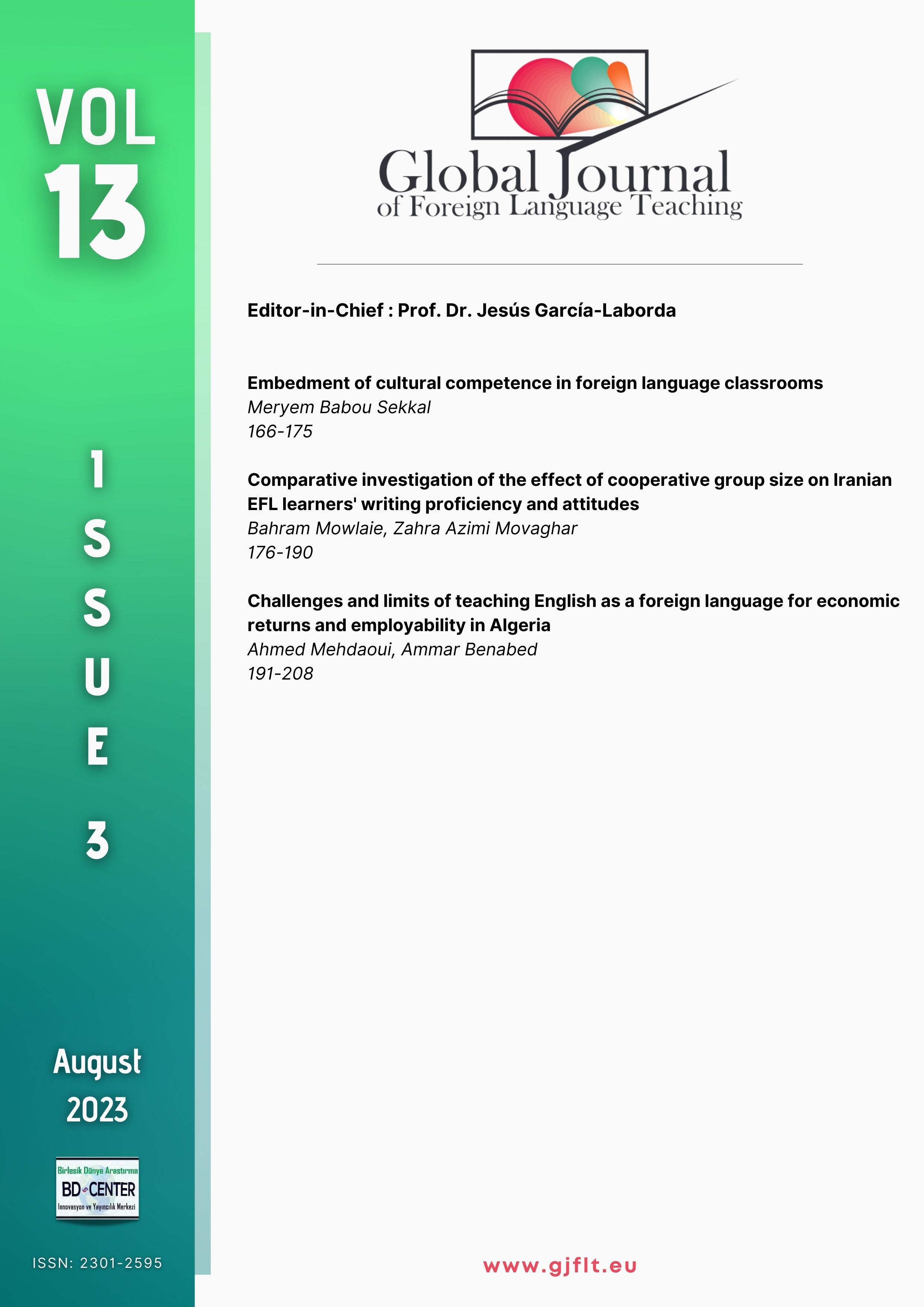Embedment of cultural competence in foreign language classrooms
Main Article Content
Abstract
Contemporary classrooms are portrayed by the use of many languages as they are influenced by many cultures. This fact is the plain and imminent outcome of globalization. This situation boosts the importance of integrating compatible and relevant elements of culture as a teaching pedagogy. Hence, teachers should recognize students’ differences and commonalities. In other terms, the instructors need to form themselves in a way that serves their students’ needs and expectations about the cultures handled in their classrooms. Hitherto, this paper’s significance can be embodied in the relevance of integrating culture in teaching to achieve satisfactory learning outcomes. The research has relied on three research instruments; classroom observation, questionnaire, and unstructured interview, and the data are analyzed qualitatively. The sample population is represented by teachers and students of Moulay Tahar University (Saida Algeria). The results demonstrated that foreign language teachers should integrate culture in their lectures since it comes up with auspicious results namely communicating interculturally. The paper at hand raises new opportunities to handle another research for further findings with a large size of informants.
Keywords: Communication; competence; culture; responsive teacher; student’s learning.
Downloads
Article Details

This work is licensed under a Creative Commons Attribution-NonCommercial-NoDerivatives 4.0 International License.
Authors who publish with this journal agree to the following terms:- Authors retain copyright and grant the journal right of first publication with the work simultaneously licensed under a Creative Commons Attribution License that allows others to share the work with an acknowledgement of the work's authorship and initial publication in this journal.
- Authors are able to enter into separate, additional contractual arrangements for the non-exclusive distribution of the journal's published version of the work (e.g., post it to an institutional repository or publish it in a book), with an acknowledgement of its initial publication in this journal.
- Authors are permitted and encouraged to post their work online (e.g., in institutional repositories or on their website) prior to and during the submission process, as it can lead to productive exchanges, as well as earlier and greater citation of published work (SeeThe Effect of Open Access).
